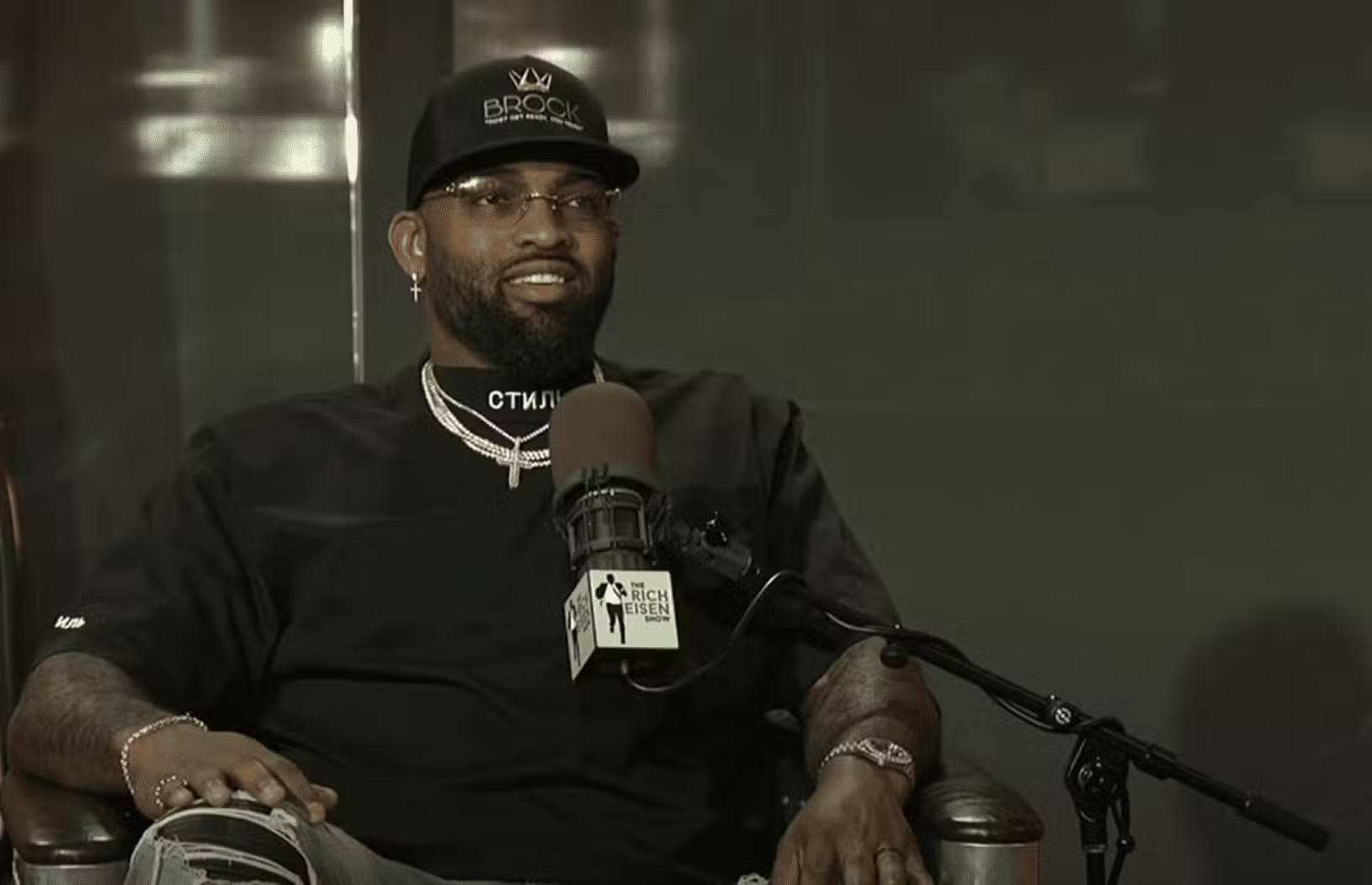During his tenure with the Detroit Lions, Michael Brockers didn’t just contribute on the field. He became a key figure in shaping the team’s culture, especially during some of their toughest seasons. Brockers’ time in Detroit is marked not only by his experience as a defensive force but also by his growth as a leader — and it was his leadership that played a crucial role in the Lions’ eventual turnaround.
One pivotal moment that Brockers recalled recently during an interview with Dave Birkett of the Detroit Free Press on Radio Row at Super Bowl 59 was when his own actions and mindset were called into question by a teammate. It was in the middle of the 2021 season when the Lions were struggling. Brockers, who had seen his fair share of winning in the NFL, had begun to feel frustrated by the team’s lack of success.
The 2021 season had been tough. At one point, the Lions were 0-7, and Brockers admitted that he was feeling disconnected from the team’s efforts. His frustration with the losing culture began to show, and he found himself somewhat checked out. That’s when a teammate, who Brockers affectionately calls “CJ” (the only “CJ” on the team at the time was CJ Moore), stepped up and called him out during a team meeting.
“Man, Brock, I feel like you’ve checked out,” CJ said, pulling no punches.
Brockers reflected on that moment during his interview, noting the profound impact it had on him. “I had to put my big boy pants on and understand that whatever situation I’m in, these guys don’t have anything to do with it,” Brockers shared. “They deserve 115% of me if I say I’m a part of this team.”
This conversation with CJ helped Brockers realign his focus, and he immediately rededicated himself to the team, pushing himself to give his all, even when the odds seemed stacked against them.
Michael Brockers recalled how that conversation was a turning point for him and the team. The realization that his actions and attitude were being observed by younger players — those who looked up to him for leadership — helped him embrace his role in a new way. The humbling experience made him realize that his personal frustrations were secondary to the team’s collective goals.
“I was somewhat checked out and you know, I had one of the players check us in the meeting,” Brockers said. “I think that honestly was a turning point for the Lions because everybody was bought in. Everybody knew it was bigger than ourselves.”
From that moment on, Brockers fully embraced his role, working harder than ever to set an example for the younger players in the locker room. His leadership in practice and on game days became an essential part of the Lions’ journey toward bettering themselves and eventually turning the season around.
Michael Brockers’ story illustrates the impact of strong leadership in times of adversity. While the team struggled through tough seasons, it was moments like these that laid the groundwork for future success. The Lions began to embrace a culture where accountability, effort, and selflessness were prioritized — qualities that Brockers embodied.
“The team was bigger than ourselves,” Brockers reflected. This mindset shift helped the Lions become more united, fostering a strong locker room atmosphere that was vital to their improvement in the years that followed.
Michael Brockers’ leadership wasn’t just about physical presence on the field, but about mental and emotional resilience. His influence as a veteran with championship pedigree became an invaluable asset to the Lions, especially during the challenging moments. His example of putting the team first — and humbling himself when needed — helped set a new tone for the organization.
As the Lions look forward to the 2025 season, Brockers’ impact on the culture remains evident. The lessons he helped instill, particularly in younger players, continue to shape the team’s identity. Whether it’s Aidan Hutchinson, Jared Goff, or the many other rising stars on the roster, the influence of veteran leadership like Brockers’ continues to echo in the Lions’ locker room.
While Brockers may no longer be part of the active roster, his legacy in Detroit is one of leadership, accountability, and selflessness — all crucial elements of the Lions’ future success.

Leave a Reply